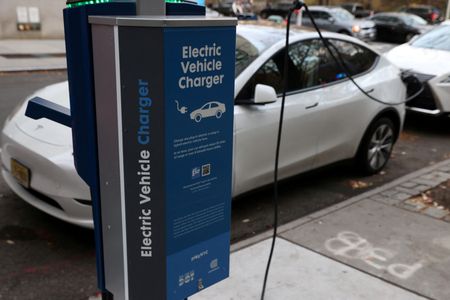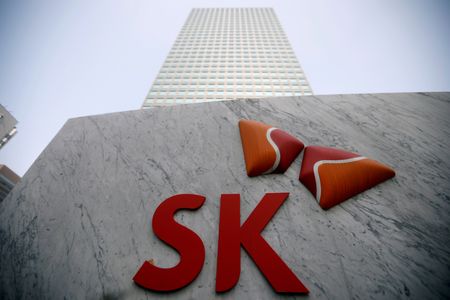By Heekyong Yang and David Shepardson
SEOUL/WASHINGTON (Reuters) – South Korean battery makers have urged the U.S. government to factor in realities of a complex supply chain for the industry and not hold the sector to “impossible requirements” ahead of the implementation of new U.S. EV tax credit rules.
LG Energy Solution Ltd (LGES), SK Innovation’s SK On and Samsung SDI Co Ltd expressed their concerns about the electric vehicle tax credit rules in comments submitted to the U.S. Internal Revenue Service (IRS).
Under the new EV rules, to be implemented from Jan. 1, 2023, at least 40% of the value of critical minerals for batteries need to be from the United States or an American free-trade partner for manufacturers to qualify for U.S. tax credits.
That will gradually rise to 80% in 2027.
“It is extremely difficult to build most clean energy technologies, including EV batteries in the United States, without using certain foreign-made parts and, specifically, raw materials extracted or processed in China,” LGES said.
LGES added in its comment that transforming the supply chain cannot occur “overnight” and urged the United States not to hold the industry to “impossible requirements and timelines”.
LGES, SK On and Samsung SDI, three major South Korean battery makers that supply to automakers such as Tesla Inc, General Motors Co and Ford Motor Co among others, together command more than a quarter of the global EV battery market, according to SNE Research.
SK On echoed the concerns.
“A limited interpretation would also risk unintended market outcomes, such as sudden price hikes for suppliers in specific countries, and unnecessarily concentrate processing in limited places. Such market distortions could create artificial costs and barriers along the supply chain,” SK On said.
Samsung SDI also urged the United States to implement rules that allow flexibility to meet supply chain requirements, adding that automotive supply chain contracts often last several years.
LGES has also asked the United States to establish a confidential process to share battery composition, pricing and sourcing information with the Treasury Department to ensure that such sensitive information is not disclosed to competitors.
The U.S. Treasury and IRS started seeking public comment on the new law last month. A total of 821 comments from automakers, parts makers as well as foreign governments have been submitted to the IRS.
(Reporting by Heekyong Yang in Seoul and David Shepardson in Washington; Editing by Himani Sarkar)



